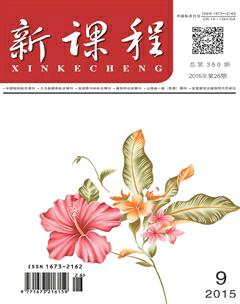英语短文改错解题技巧点拨
焦花兰
摘 要:短文改错是每年高考英语试题中平均得分较低的题型,但由于其本身有规律可循,有必要对其命题特点进行分析研究,从而提高解题技巧。
关键词:短文改错;问题错误;技巧分析
短文改错是一道集语法知识和语言技能为一体的综合性题目,其目的在于考查学生发现、判断、纠正文章错误的能力,进而考查学生的词法、句法及行文逻辑等方面的水平以及在语篇中综合运用英语的能力。短文改错是专门针对学生在英语学习过程中特别是写作训练中常犯错误而设计的。对他们而言,此题是拉开档次的一道题目,然而很多考生对该题感到束手无策。关键在于找不到错误、不会找错误,那么,怎样找错误、发现错误就成了解这道题目的关键。下面我就短文改错测试点的分布进行分析,帮助大家寻找规律,从而提高短文改错题的解题技巧。
一、冠词的误用
1.不定冠词a和an(a用于辅音音素前,an用于元音音素前,如26个字母中的a、e、f、h、i、l、m、n、o、r、s、x之前用an)。
2.不定冠词和定冠词的混用。
3.零冠词(物质名词、抽象名词、三餐、星期、月份、季节、学科、球类、棋类以及by与交通工具连用等。)
4.在某些习惯用语和固定搭配中。
(1) Today we had a early breakfast. (a→an)
(2) After a hour we arrived there. (a→an)
(3) A horse is an useful animal. (an→a)
(4) There is a i and a l in the word child.(a→an)
(5) When a child is five in England,his parents must send him to the school. (去掉school, school为上学时其前不加the)
(6) He often goes to school by a bus. (a去掉)
(7) We usually have the lunch at 10∶00 every day.(the去掉)
(8) The car disappeared in distance. (in后加the)
二、名词的误用
1.可数名词与不可数名词。
2.抽象名词具体化(如success,failure,pleasure,surprise,beauty,worry,interest,joy,delight,danger,sorrow,trouble,pain 等)。
3.经常以复数形式出现的名词(glasses,trousers,gloves,socks,earnings,savings,surroundings等)。
4.名词所有格形式。
5.名词作定语。
(1) It was such a good weather that they all went for a picnic.
(去掉a)
(2) While I was in Beijing I made a lot of friend.
(friend 改为friends)
(3) The meeting held last week was great success.
(great前加a)
(4) My sister wok in a shoes factory.(shoes→shoe)
(5) There are 50 man teachers in our school. (man→men)
(6) This book isnt mine, it must be someone else.
(else→elses)
三、代词的误用
1.人称代词的主格和宾格。
2.形容词性物主代词和名词性物主代词。
3.反身代词。
4.指示代词。
5.疑问代词。
6.不定代词(如each,every,all,both,neither的用法;no one,none,nobody,nothing的用法;other,others,the other,the others,another的用法;one,ones,it,that,those的用法等)。
7.相互代词(each other,one another的用法)。
8.关系代词(who,whom,that,which,whose,why,when,where,as的用法等)。
9.it 用作形式主语和形式宾语。
(1) It is a secret between he and I.(I→me)
(2) It was her that answered the phone. (her→she)
(3) You may express you in other ways. (you→yourself)
(4) -Hello!Who is that speaking?
—Im Mary!(Im→This is)
(5) —What color do you like?
—White,black or green?(What →Which)
(6) This one in a bit large for me,would you please show me other one?(other→another)
(7) I have bought several new novels .You can read it if you like.(it→them)
(8) Every side of the street is lined with green trees.
(Every→Each)
(9) Smith pointed to a path where he thought would lead to a village.(where→that/which)
(10) That is difficult to learn English well.(That→It)
四、介词的误用
1.常用的易混介词。
2.介词与形容词的搭配使用。
3.多用介词和漏用介词的情况。
4.这些短语中的 to 是介词(be/get used to,stick to,object to, lead to,devote to,be sentenced to,pay attention to,look forward to, come to等)。
5.当名词前面有this,that,next,last等词修饰时不用介词。
(1) Tom helped the old lady over the road. (over→cross)
(2) He has many other friends except me. (except→besides)
(3) We should serve for the people heart and soul. (去掉for)
(4) Whom do you believe the dictionary belongs?
(belongs后加to)
(5) Im looking forward to hear from you soon.(hear→hearing)
(6) They had a good time on that day.(去掉on)
五、形容词和副词的误用
1.比较级和最高级的用法。
2.形容词和副词的混用。
3.倍数的表达方法。
4.容易出错的几组副词(deep“深”,deeply“深深地”;high“高高地”highly“高度地”;wide“宽大地”,widely“广泛地”;close“靠近地”,closely“仔细地,密切地”;late“晚”,lately“最近”;hard“努力”,hardly“几乎不”)
5.由现在分词和过去分词转化来的形容词的混用。如interesting与interested,satisfying与satisfied,disappointing与disappointed等。
6.so...that结构与such...that结构的误用。
(1) We had a wonderfully time there.(wonderfully →wonderful)
(2) Lucky enough,a lot of neighbors came out and soon firefighters arrived.(lucky→luckily)
(3) This book is much interesting than that one.
(much→more或much后加more)
(4) I was praised high for it,which made my parents happy.
(high→highly)
(5) The boy is interesting in surfing the Internet.
(interesting→interested)
(6) Its so an interesting film that we all like it.(so→such)
六、动词的误用
1.及物动词与不及物动词。
2.连系动词的用法。
3.情态动词的用法。
4.动词的时态和语态。
5.非真实条件句中谓语动词的形式。
(1) They greeted to each other politely.(去掉to)
(2) The serious accident was happened in Jinan.(去掉was)
(3) They greeted to such a hurry that he knocks his brother down. (knocks→knocked)
(4) Lily and Linda were seeing near the tall building.
(seeing→seen)
(5) My brother told me that he would going to America.
(going→go)
(6) If you had listened to my advice ,you will be all right now . (will→would)
七、连词的误用
1.并列连词(and,but,or,while,so,for等)。
2.从属连词(that,if,whether,before,after,since,because,as soon as等)。
3.热点句型。
a.祈使句+and/or b.It is+一段时间+since...
c.强调句型 d.when作并列连词的用法
(1) “Your money and your life?” he was frightened. (and→or) (2) Though he is weak,but he does his best to do the work.
(去掉but)
(3) I was watching TV while someone knocked at the door.
(while→when)
(4) I doubt that youll succeed or not.(that→whether)
(5) I walk to school every day except that it rains.(that→when)
(6) It is ten years when we met.(when→since)
八、数词和主谓一致
1.语法一致原则。
2.意义一致原则。
3.就近一致原则(or,either...or,neither...nor,not only...but also,not...but,here,there引导的句子中)。
4.分数、百分数的表示法以及它们修饰名词作主语。
5.当主语后跟有with,together with,but,besides,except,like,as well as,more than,rather than,no less than等引起的短语时,谓语动词仍与前面的主语保持一致。
6.定语从句中的谓语动词由先行词的单复数决定。
(1) About two-third of the teacher in this school are women.
(two-third→two-thirds)
(2) Here come the bus.(come-comes)
(3) Either the students or the teacher are our friends.
(are→is)
(4) Mr Green,together with his children have come to China.
(have→has)
(5) The news that have been published in todays newspaper is not true.(have→has)
九、非谓语动词
1.非谓语动词之间的误用。
2.一感、二听、三让、五看,半帮助(feel, hear,listen to,have, let,make,see,notice,observe,watch,look at,help)等词后接动词不定式作宾语补足语时要省略to,但当这类句子变为被动结构时,不定式前面的to要补上去。
3.不定式符号to与介词to的混用。
(1) Judged from his accent,he must be from Shanghai.
(Judged→Judging)
(2) All the homework was finished, we went out.(去掉was)
(3) I often hear the girl to sing the song. (去掉to)
→The girl is often heard to sing the song.
(4) Im looking forward to you come here again.(come→coming)
(5) Seeing from the top of the hill,the city looks more beautiful. (seeing→seen)
十、词义的重叠
(1) Today I visited the Smiths-my first time visit to an American family. (去掉time)
(2) When I was a boy,the most exciting thing was when to celebrate the Spring Festival. (去掉when)
(3) Two years later,he returned back home.(去掉back)
(4) It is about 200 miles far away from London.(去掉far,若有数词,一般不用far)
十一、从句
引导词的误用、多用与漏用。
(1) I also enjoyed the days when we spent together.
(去掉when或when→that/which)
(2) I live in Beijing,where is the capital of China.
(where→which)
(3) I have a good friend whos name is Liu Mei.
(whos→whose)
(4) It has been five years when we graduated.
(when→since)
(5) At the airport where all the baggage must be examined.
(去掉where)
(6) This book is written in such easy English as I can read it. (去掉it)
当然,要真正提高短文改错能力还需要不断的专项练习,通过强化训练来提高改错能力,相信学生也会取得理想成绩。

